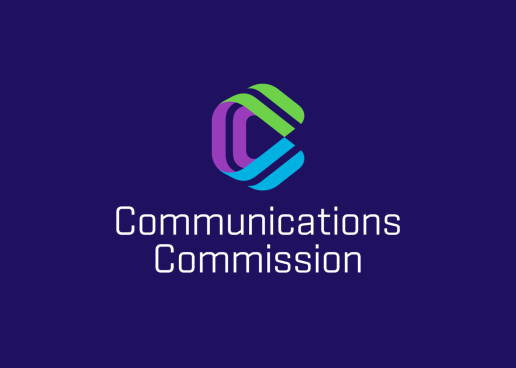Communications Commission Urges RSF to Assess Media Environment Carefully
Communications Commission states its concerns related to the information spread by an organization 'Reporters Without Borders,' commonly referred to by its French acronym, RSF, about Georgian media and recent amendments in Georgian Law on Electronic Communications.
The news release published by the Communications Commission claims that an article, published on July 20, with the title 'Mounting Pressure on Georgia’s media in the run-up to elections' contains erroneous facts and bases its misleading findings on them.
“With less than four months to go to high-stakes parliamentary elections, Georgia’s parliament has passed an amendment restricting the freedom of the broadcast media,” reads the article.
Commission expresses its concerns over the fact that influential and respectable international organization, such as 'Reporters Without Borders' disseminates deceiving information about Georgian media environment and legislative amendments without carefully examining facts, which misleads an international society.
Communications Commission, the legislative branch, and a government made numerous announcements stating, that the legislative amendments had no connection with a broadcasting media and Georgian Law on Broadcasting. Legislative amendments on Georgian Law on Electronic Communications, published on July 17th, which is accessible for every interested party, validates the abovementioned statements. Once again, we declare, that the amendments do not affect any type of broadcasters, including multiplex platform operators. Even more, legislative changes address authorized persons working in the field of electronic communications (not broadcasters), who own critical infrastructure and are considered as companies with significant market power (SMP), only when they abuse their powers. For the meaning of this legal provision, abusing powers includes disobedience to sanctions even after getting them four times in a row, within one year, and failure to oblige restrictions in the field of competition such as a) Access Obligation; b) Tariff regulation; c) Selling the company, its shares/assets without a pre-consent of the State.
It is impossible, that steps, taken towards the protection of critical infrastructure and competition “jeopardize media independence and pluralism” as it is stated in the article.
"We are sure, that the organization 'Reporters Without Borders' is well aware, that Georgian media policy, in the scope of its enforcement, is considered as one of the most liberal policies throughout Europe. Nowadays media is completely deregulated and there is not a single legal regulation, which can be related to intervention in editorial policy. Based on the Georgian legislation, the licensing system is completely abolished. Starting to broadcast is possible for any person with an easy authorization procedure in just 10 days. Nowadays, there are more than 100 TV and more than 40 active radio broadcasters in Georgia and a pluralistic media environment is guaranteed," read the news release.
Based on the reports of 'Reporters Without Borders' itself, there is a tendency in Georgia of increasing a quality of freedom of media. In 2012 Georgia held 104th place in the ranking, whilst for the year of 2019, the country holds 60th place. From the year 2012, Georgia has advanced its place in the ranking with 44 steps, which is exactly a result of liberal state media policy existing in the country.
"Another topic, mentioned in the article is a web-platform of media critics. Sadly, in this case, assessments are made based on the evaluations of certain media and non-governmental organizations, which do not represent reality. The article does not mention actual goals and benefits of web-platform www.mediacrtitic.ge, which is created by the Media Academy of Communications Commission to raise awareness about media literacy. The platform is dedicated to offering professional, qualified, and impartial media criticism to society and thus encourages thoughtful and informative choices and development of analytical thinking.
"For the Communications Commission, a state body defining a state media policy, spreading erroneous, unexamined information and assessments based on erroneous and unexamined facts is absolutely unacceptable. We believe, that these erroneous assessments can damage Georgia’s reputation and mislead international society. Therefore, we address the organization “Reporters Without Borders” to examine information, specified in our statement, and only after verifying the facts make assessments and spread actual information about the media environment in Georgia," reads the publication.
By Ana Dumbadze
Source: comcom.ge












